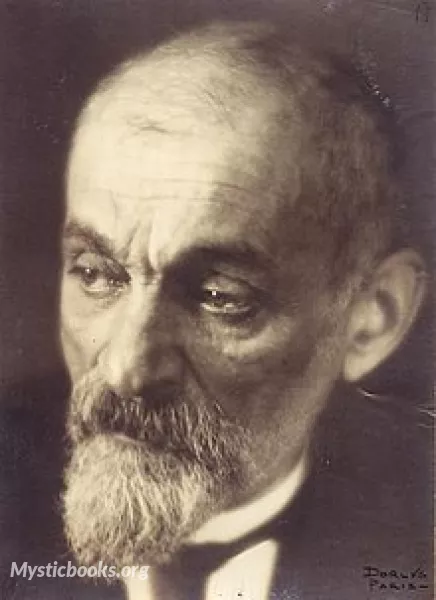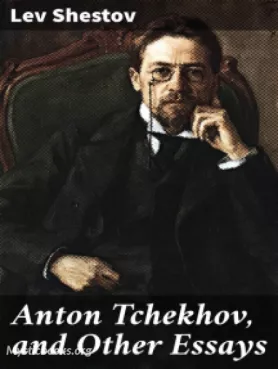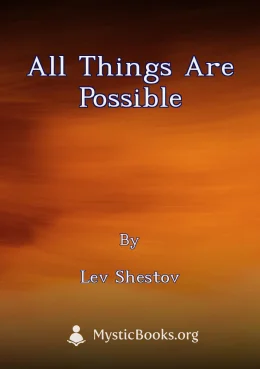
Timeline
Title
Country/Nationality
Lev Shestov
Lev Isaakovich Shestov (January 31, 1866 – November 19, 1938) was a Russian existentialist and religious philosopher. He is best known for his critiques of both philosophic rationalism and positivism. His work advocated a movement beyond reason and metaphysics, arguing that these are incapable of conclusively establishing truth about ultimate problems, including the nature of God or existence.
Life and Principles
Shestov was born in Kiev, Ukraine, into a Jewish family. He studied law at Moscow State University, but was expelled for his political activism. He then moved to St. Petersburg, where he became involved in the literary and philosophical circles of the time.
Shestov's philosophy was deeply influenced by the work of Søren Kierkegaard and Friedrich Nietzsche. He was particularly interested in their critiques of rationalism and their emphasis on the importance of faith and experience.
Shestov's own philosophy was complex and often contradictory. However, some of its central themes include:
- The importance of faith over reason
- The impossibility of knowing God or ultimate reality through reason
- The importance of individual experience
- The freedom of the will
- The importance of love and compassion
Notable Works
Shestov's most important works include:
- All Things Are Possible (1905)
- Dostoevsky and Nietzsche (1909)
- Athens and Jerusalem (1914)
- In Job's Balances (1929)
- Kierkegaard and Religious Philosophy (1936)
Philosophy
Shestov's philosophy is difficult to summarize, but some of its key ideas include:
- The importance of faith over reason: Shestov believed that reason is limited and incapable of grasping ultimate reality. He argued that faith is necessary to believe in God and to live a meaningful life.
- The impossibility of knowing God or ultimate reality through reason: Shestov believed that God is beyond human comprehension. He argued that any attempt to understand God through reason will lead to error.
- The importance of individual experience: Shestov believed that each individual must experience God for themselves. He argued that no one can tell another person what to believe.
- The freedom of the will: Shestov believed that humans have the free will to choose between good and evil. He argued that God respects our freedom, even if it means that we may choose to disobey him.
- The importance of love and compassion: Shestov believed that love and compassion are essential for living a moral life. He argued that we should love and forgive others, even if they have wronged us.
Death and Legacy
Shestov died in Paris in 1938. He was buried in the Montparnasse Cemetery.
Shestov's work has had a significant influence on existentialist and religious philosophy. He is particularly known for his critiques of rationalism and his emphasis on the importance of faith and experience.
Interesting Facts
- Shestov was a cousin of Nicholas Pritzker, the founder of the Pritzker family fortune.
- Shestov was friends with a number of notable writers and philosophers, including Fyodor Dostoevsky, Leo Tolstoy, and Edmund Husserl.
- Shestov's work has been translated into many languages and is read by scholars and theologians around the world.
Conclusion
Lev Shestov was a complex and original thinker who made significant contributions to existentialist and religious philosophy. His work is still relevant today, and it continues to challenge and inspire readers.
Books by Lev Shestov

Anton Tchekhov: and other essays
In "Anton Tchekhov and Other Essays" by Lev Shestov, journey into the enigmatic depths of the human psyche and explore the boundless complexities of life through the profound lens of one of Russia's most brilliant philosophers. Lev Shestov, a maestro...

All Things Are Possible
Lev Shestov's *All Things Are Possible* explores the nature of faith and doubt in the face of an indifferent universe. He challenges traditional philosophical and religious perspectives, arguing that true faith must embrace the possibility of the im...